Your stories
It can be helpful to read about the experiences of others with MND. Below is a collection of stories as told by New Zealanders with MND, or those that have cared for someone with MND.
If you want to share your story and personal experiences on our website, or in the media to raise awareness of MND, you can do so here. Raising awareness of MND is vital and sharing personal experiences is a powerful way to do this.
Your Stories
My husband Edward found out just over a year ago he had motor neurone disease (MND).
Looking back now, I may have seen little warning signs but just put it down to getting older. My husband was a fit and healthy person who rarely got a cold. He gave up smoking 50 years ago and drinking about 25 years ago. He was working full time in a job he loved and had been there for almost 20 years. He planned to work for about three more years in order for us to build up our savings for retirement.
We were both looking forward to being able to spend more time together. We both loved music, gardening and travel, and going out to dinner or seeing a show.
Edward is now in a full-time care facility. All he can move is his head.
My husband is one of the bravest people I know. He always has a smile, he never complains and is trying so hard. He does not want to discuss his MND, he just wants to focus on the here and now.
He is happy in the facility he is at and is being well looked after. His condition seems to have stabilised, which gives me hope I may have him for a while longer. I visit nearly every day and miss him being at home. During the day I keep thinking he is just at work and that helps.
Over the past few weeks I am crying less. Maybe I am coming to terms with my husband’s condition more, I don't know. I love him dearly, and I am sad and angry he never got to retire and has missed out on some of his dreams. Life is not fair, but I am treasuring each and every day I still have him.
We love Italy and have made six trips there over the past 10 years. We visited Italy for the last time together in June/July this year. I had booked the tickets last year and I really was in two minds about going, but Edward insisted we go. We had many challenges, but with the help of family, the airline and train staff we pulled it off.
Sadly the day after we returned home, Edward ended up in hospital with a blood clot on his lung, despite wearing support stockings. He spent the next few weeks in hospital, until it became apparent he needed 24-hour care. It broke my heart but I had to do what was best for him.
I am now planning a special opera and musical theatre concert for Edward’s 70th birthday on December 8, so he has something special to look forward to. Our family who live overseas are coming back for Christmas, and he is very excited about this too. I think its important to keep Edward’s spirits up and keep him involved in what going on.
We didn’t see the MND New Zealand support worker until a few months after Edward’s diagnosis. It took a few months for it to sink in – I think we were both in denial. Now, I find that it is good to have someone to talk to who understands what you are going through. It is a lonely and difficult road for the patient as well as families.
You do need to be ready to ask the difficult questions and only take on board as much as you can cope with. For anyone newly diagnosed with MND, I would say to just pace yourself, and take things a day at a time. Ask questions when you feel ready.
We never know what life is going to throw at us. It’s how we deal with it and how we make the most of every day we have. My husband is my world and I just want him to feel happy and loved.
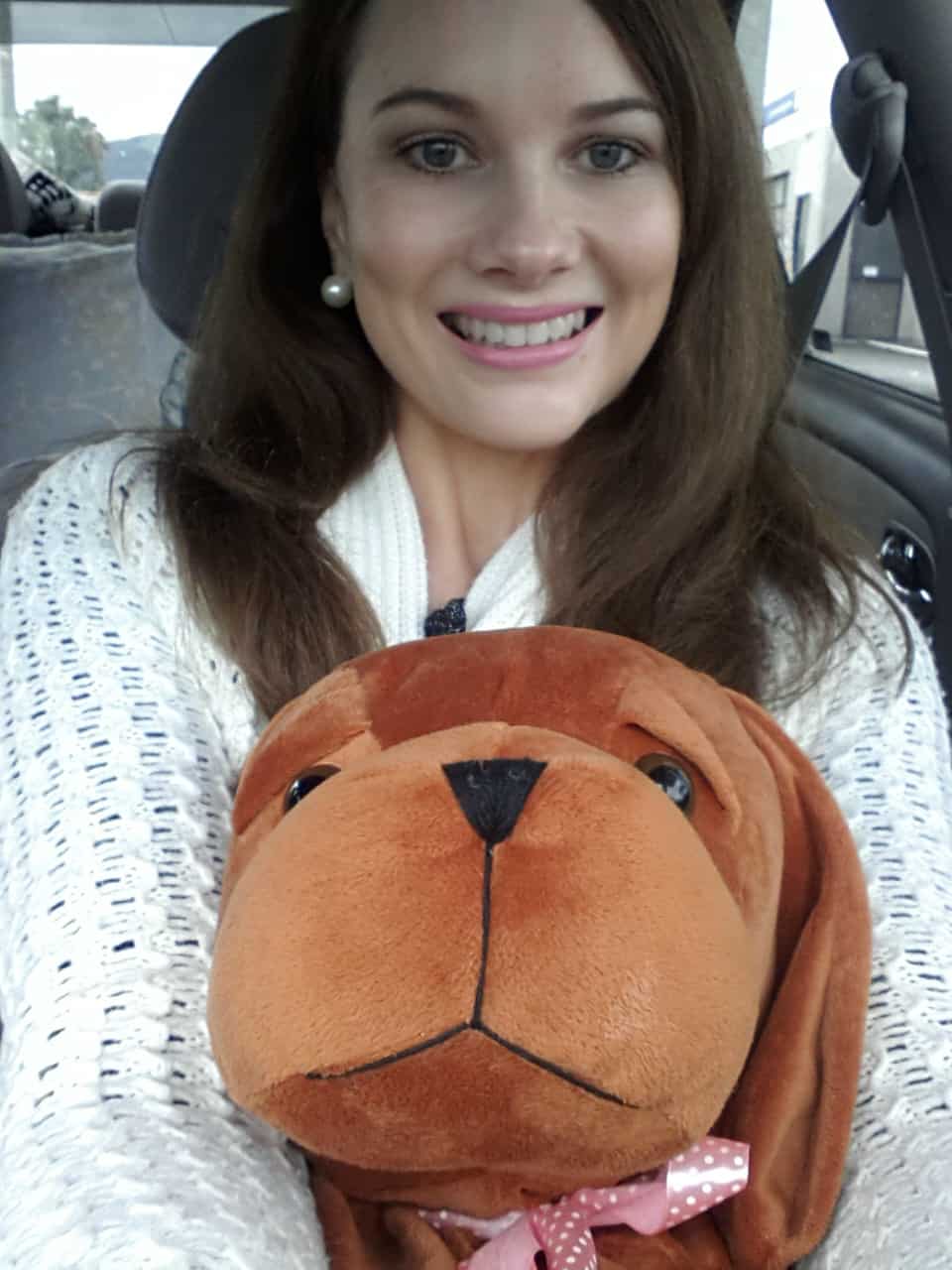
In August 2013, with a rare lazy Sunday afternoon at my disposal, I curled up and switched on the TV.
Extreme Makeover Home Edition came on. Not being highly resistant to tear-jerking stories, I knew the episode would be challenging. However, I didn’t know the extent to which my heart would be permanently touched. Nor did I know that I would be spurred into ongoing action against what must be one of the cruellest conditions currently baffling medical science.
The programme documented a new home build for the Williams family in Georgia USA. Viewers were introduced to the family known as ‘The Four Js’ – Jeremy, wife Jennifer, daughter Josie and son Jacob (who has spina bifida).
Despite being one of America’s most prominent football strategists, Jeremy had chosen not to pursue big-budget coaching roles but to instead to ‘make a difference’ to the young men at Greenville High, a school in an economically modest area 60 miles south of Atlanta.
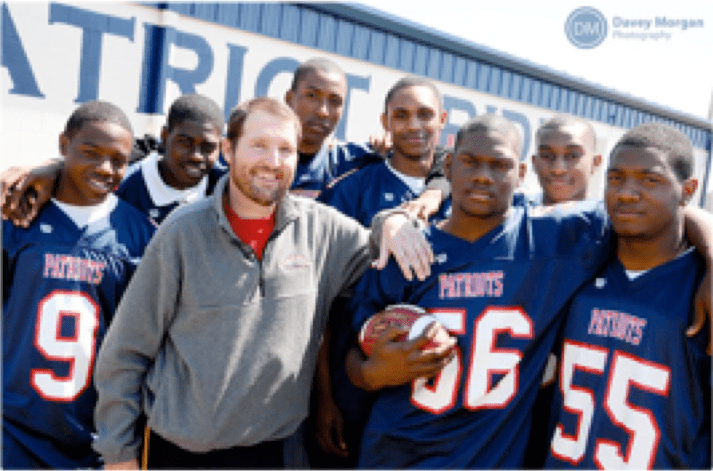
Jeremy did more than simply coach his team in football. He mentored them as people, encouraging them to overcome personal adversities, apply discipline to their academic studies, achieve as sportsmen and develop into fine young leaders. With many in his squad having one parent either dead or in prison, he was often viewed as a surrogate father.
Loyalty and pride are powerful. Gradually, this unknown team gained finesse, winning against established rivals from affluent areas. A dream season had begun and the Williams family was thriving on and off the pitch.
Until one day, Jeremy was riding his bicycle and felt his hand become incredibly weak. The weakness gradually moved up his arm. Finally, tests at Johns Hopkins revealed he was in the early stages of the most common type of motor neurone disease (MND), amyotrophic lateral sclerosis (ALS). For someone whose financial security and very identity rested in his sporting ability, the diagnosis was particularly crushing.
Jeremy fought to remain a role model for his team and continued coaching until it was no longer possible. His final match as coach occurred during the State championship and the story of his team’s remarkable rise was documented in the movie Season of A Lifetime.
In recognition of his superb contribution to sport and education, the community of Pine Mountain Valley partnered with the team at Extreme Makeover Home Edition to build the Williams family a beautiful wheelchair-friendly home and a state-of-the-art training facility for the Greenville High football team.
Where do I come in?
That Sunday afternoon, expecting to be entertained, I instead received a forcible reminder of the strength of the human spirit, the power of community and the importance of living life to the fullest, with those we love, every single day.
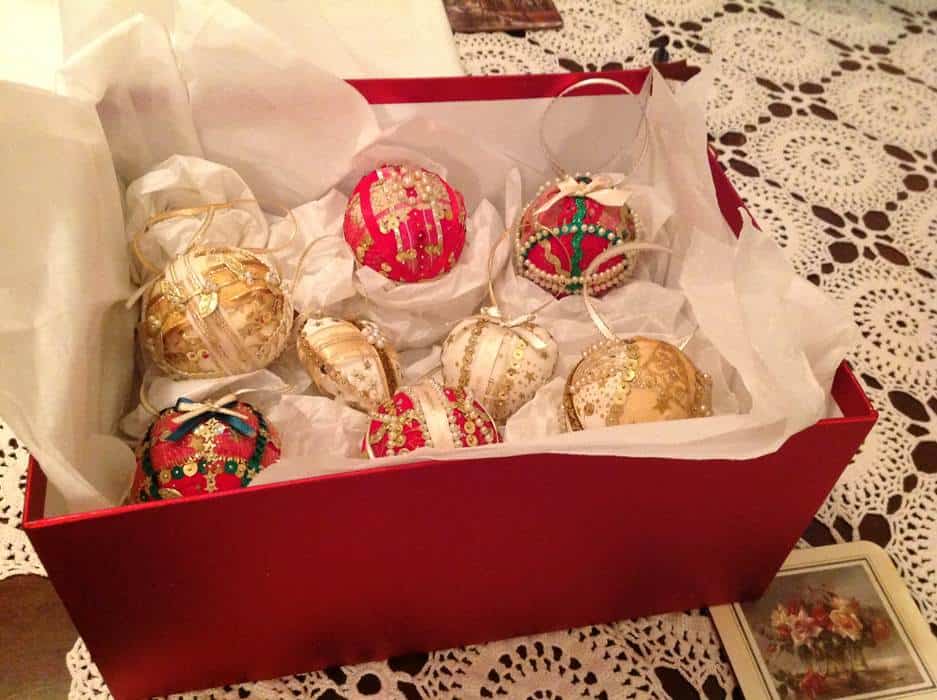
I felt I had received a real gift and thought there must be a way to reach out across the globe and touch the hearts of this family in turn. So, for four months, I spent many evenings after work making a large set of Christmas decorations by hand, figuring that each Christmas must be particularly precious in their household. Each decoration took 6 to 8 hours to make. When I finally filled a large box, I wrote a letter explaining who I was, found some generic mailing details online (I relied on the local post office knowing who Jeremy was!) and couriered my gift to the US.
You can imagine my disappointment when the US Postal Service advised the parcel had been lost (suspected stolen) during Customs processing. It was only a week out from Christmas, and there was no way a replacement parcel could be made or sent in that time. FedEx sent me insurance forms but, somehow, I couldn’t bring myself to claim for that gift.
After finishing work early on Christmas Eve, I went home feeling deflated. To my surprise, late that afternoon an unmarked FedEx vehicle pulled into the driveway with a return Christmas gift from the Williams family – they had received my parcel weeks earlier. My decorations had been on their tree the entire time the USPS had been trying to find them!
That Christmas was the start of a wonderful friendship. I am Jeremy’s ‘Kiwi sister’ and I think of the Four Js as my family. Jeremy sends me amazing emails. He’s an excellent writer and spends hours using a special eye-tracking computer to write updates and keynote speeches.
Despite not being able to eat or breathe unassisted, he travels around the US, speaking to audiences (through a computerised voice synthesizer) about the human ability for compassion and courage in the most difficult of circumstances. He is truly inspirational.
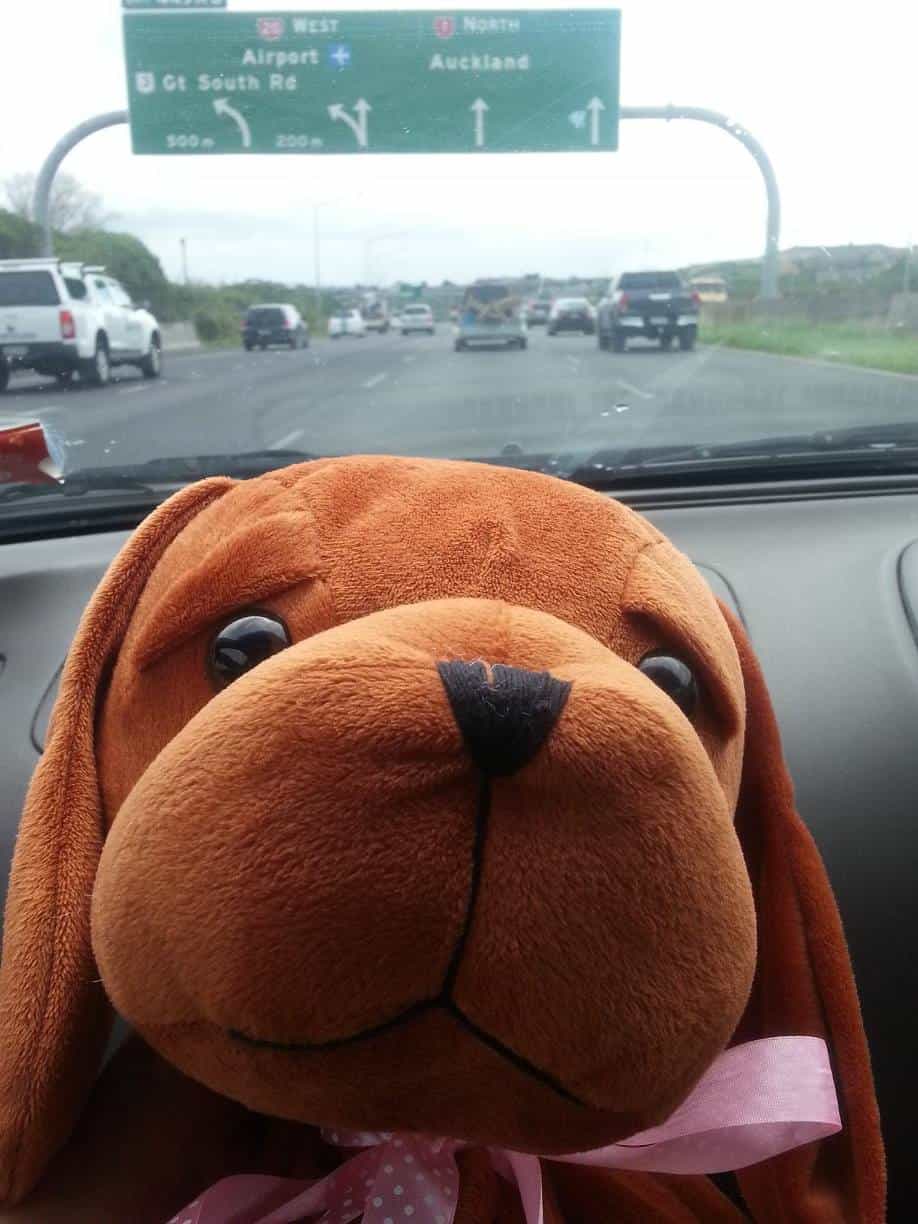
Each Christmas remains a special anniversary for our families. Last year, I bought two large MND New Zealand Hope Puppies. One, called Logan, was shipped off to US where he has pride of place in the Williams’ house. One, called Lottie, stayed in Wellington with me.
Recently, Lottie toured up to Auckland with me, where I recorded a few songs as a Christmas gift for the Four Js: ‘O Holy Night', ‘O Mio Babbino Caro' and ‘Moon River'. Prior to working in government, I did a degree in classical piano performance and I am also trained as an opera singer. Music remains very close to my heart and I thought it would be a nice way of giving the best that I have to give to the loveliest people I know.
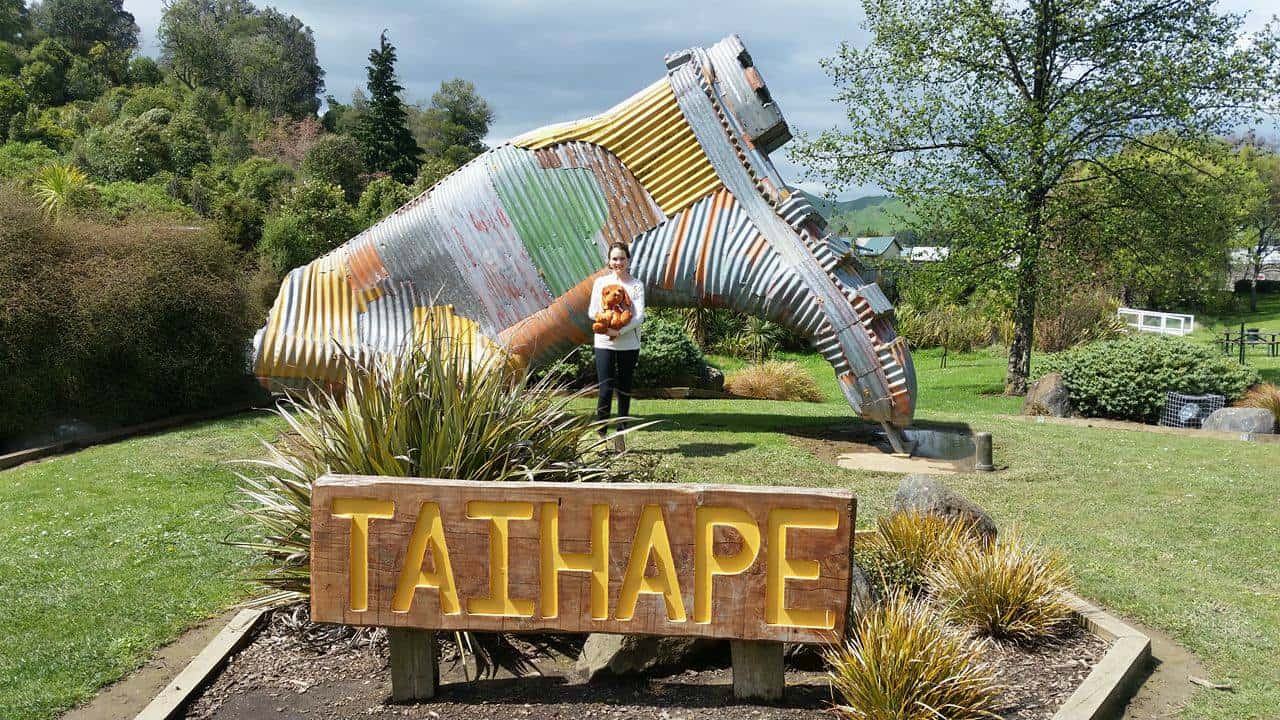
I decided taking Lottie to Auckland with me was a great way to raise awareness of MND while also letting the Williams family see some of New Zealand’s landmark scenery. I admit to feeling very conspicuous posing with a puppy (we seriously stood out, and not in a good way, by Taihape’s gumboot).
However the conversations I had with people soon dispelled any self-consciousness. The stories I heard during the journey, and since, have been heartwarming and the support received from MND New Zealand has been equally humbling.

The entire CD project took around six months – saving up, organising bespoke orchestral backings to be made, then recording – and I had to budget carefully. The CD of songs is now released for sale in New Zealand, with all proceeds going to MND research and support.
I feel so privileged that the CD will not only take a little bit of Katherine over to Georgia but that the money raised from its sales will help MND NZ in their superb and essential work. This wider purpose has been an unexpected blessing, very similar to the gift I received by meeting the Williams family and very much in keeping with the Christmas story.
There is such a community, in New Zealand and globally, supporting research into MND and providing strength to the individuals and families affected by it. It’s a real honour to be a part of that.
Please email to order your copy of Katherine Lancaster at Christmas ($20)
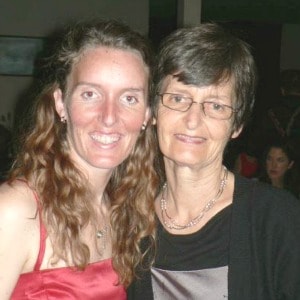
In late 2014 my lovely mum came to visit for a coffee, as she often did. I will never forget her sitting on the couch chatting away, and just slipping into the conversation that she had been to the doctor the day before, as she thought she had a virus.
A few short months later we would discover she had motor neurone disease. MND, in simple terms, is a disease that affects a person’s motor skills. The neurological messages from the brain to the muscles in your body stop working. The last muscles to go are usually the muscles around the lungs.
Mum walked every day, and had started to notice a weakness in her legs. The doctor proceeded to do various tests and came to the conclusion that she indeed had a virus.
Then Mum had a fall at my sister’s house, at a BBQ on January 1st 2015. This was not a normal fall. It was due to the fact she didn’t have the strength in her leg to walk up a step – while holding her baby grand-daughter.
We are fortunate to have members of our family who are medically trained, and this event got a few alarm bells ringing. They encouraged mum to go to the emergency department the next morning.
Christchurch Hospital then put Mum on the acute neurological clinic list, and we were told she would be seen in a month or so If anything changed we were told to return to her GP, and he could then re-refer to speed up the process.
To be honest, at this point I was relatively naïve about what could be wrong with Mum, as it would be fair to say I am medically ignorant. It was only two weeks later, though, when the grave reality set in that something could be very wrong with one of my best friends, my Mum.
We were away camping in Wanaka, and I rang Mum and Dad – who were also away camping – to see how things were. Mum, in her normal fashion, said “I’m fine”, something that she would repeat until the day we lost her. “I’m fine… I am having trouble now getting up off the floor on my own, but I’m fine, don’t worry about me.”

In only two weeks she had gone from being a bit weak in her legs, to not able to get up off the floor! I remember the moment I felt sadness overwhelm me. Something very serious was going on, and it was happening very quickly.
There were some further doctor’s appointments and follow ups, and Mum was eventually seen by a neurologist in March. Mum described him as a lovely man, who confirmed it was a neurodegenerative disease of some description, and that he would admit her for two days of tests to confirm his diagnosis.
My personal journey up until this point had still been one of hope that the diagnosis would be something that could be treated. It was the Wednesday night before Easter 2015, and Mum had been in for two days of various tests. I drove into the hospital to see her, and when I arrived they had been told that it was in fact motor neurone disease.
The words were like knives to the inner part of my soul. My Mum had an untreatable, debilitating disease that would claim her life in a timeframe they anticipated being somewhere between six months and two years.
She was such a courageous person, who even at that point was more concerned about what that meant for my Dad and her children than what it meant for herself.
Once the diagnosis had been made, the health system kicked into gear and I have to say was incredible. We are so fortunate to have such amazing people working in this field. Gear arrived within days to help with Mum’s mobility, and occupational therapist, nurses, and all the support Dad could need was available at the end of the telephone. I cannot emphasise enough the difference this makes when you are facing such an awful reality.
My Mum and Dad are incredible people, who have a strong faith. In looking down the barrel of a limited timeframe they quickly planned a trip to Australia to see the Lion King musical (Mum was a classical pianist and loved musicals). This was for two reasons: to do something nice before Mum was too immobile, and to visit family and have quality time together.
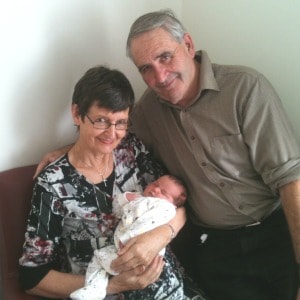
With Mum's 70th birthday looming the following February, we had decided as a family we would all go to Hanmer for the weekend to celebrate. There are six of us children, all with our own families, so as you can imagine this was not a small undertaking to organise.
Rachel's mum and dad with their first great-grandchild
However, on their return from Australia, and seeing how quickly MND was taking over Mum's abilities to be mobile, I vividly remember talking to my younger sister, a nurse, and saying, “I think we might be lucky to have her here at Christmas.” My sister agreed, and as a family we decided to bring her birthday celebrations forward to a weekend in October.
Mum's first great-grandchildren were born only a month prior to her trip to Australia, and Mum was determined to meet them. So off they went, in late May.
On their return I went to visit, and Dad sad to me quietly in the kitchen, “Lots of things seem to be slowing down.” Never wanting to be far from a conversation, Mum overheard us and said to me, “Rach, I don’t want this to be drawn out, if it’s going to happen I want it to happen. I don’t want you guys and Dad to have to go through a long drawn-out process.” Good old Mum, always thinking and considering how things affect others!
That conversation with Dad was on a Saturday night. That Tuesday, driving to work, I received the hardest phone call of my life. Dad said the medical team said family only visitors now! I almost froze…. grief overwhelmed me and the thoughts were flying around my head… “What! That means it’s not long…. I am not ready to lose my Mum! It's only June, she was diagnosed in April with 6 months to two years!”
The next ten days were spent as a family, a privileged time, a sad time, a time of the most precious memories as we journeyed Mum’s last days with her. MND had taken over. Taken over in a way that we were not ready for.
It was ten weeks between diagnosis and Mum’s last moments.
Our journey with MND was a very fast one. The hardest few months of my life. One where we were reminded of how amazing our medical system is. The support that we received from the MND Association, the nurses, the staff at the hospital was unfounded.
When Mum was diagnosed I had this feeling of helplessness. This is a feeling that many affected by the disease will identify with I am sure. I didn't know what to do, so I logged onto the MND NZ website to find out more about the disease and what there was to be done. What caught my eye was the Walk 2 D'Feet MND. So I emailed, and offered to help with anything I could. Little did I know that we would lose Mum well before the event date! But the Walk 2 D'Feet MND gave me a way to contribute. A way to do something and be a part of something that could help in some way.
Just over a year later, I reflect on this journey. The amazing research that is going into finding out more about the disease, the networks that exist to support those suffering from the disease, and how we must never stop supporting all this work.
My Mum was a vibrant, loved grandmother, mother, wife, and friend to so many people. She lived life to the full, always thinking of others before herself. MND took her life, but her legacy will live on through her family and the many people she affected, even while she was unwell.
Thank you to all who helped in our journey.
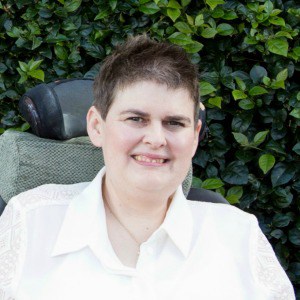
My name is Claire Reilly. You may have seen me around the place, trying to negotiate my way around Geraldine in my wheelchair, dogs attached. You may even have tried talking to me, but only got a smile in return. It’s not that I am being unfriendly, it’s just that I'm a bit hard to understand these days. It wasn’t always this way.
In 2006, I was working as a doctor at a major Melbourne Hospital. I was involved in investigating serious adverse events to make sure they didn’t happen again, making decisions about organ transplants and deciding when to shut down the hospital to ambulance and helicopter transfers. It was interesting stuff. I had found my niche after a short stint in obstetrics and life was good.
Then one day I tripped. The next, I had trouble with a button. Whilst brushing my teeth one day I noticed the muscle in my hand had wasted; something was up. I got referred to a neurologist. There was a few possibilities, and being a doctor I had my own list. Motor neurone disease was at the very bottom – but it was the diagnosis I feared the most. Going through medical school, we all agreed this was the one disease none of us wanted to get. Not the least because there is no effective treatment and no cure.
These days MND has taken away my ability to walk, run, hug, and hold. It's now affecting my swallowing and speech. I have to spend a large proportion of the day reclined in a chair because my neck muscles won't support my head. I am not telling you this out of pity – I still get a lot of enjoyment out of life. I keep up with current affairs, like watching cricket, and can't cope without my coffee in the morning. I even have a shandy every night! (But not two because it affects my driving.) I am still the same person I always was – and I have been quite lucky. I have lived a lot longer than expected and had a lot of support. It's a lot harder for others.
As someone once said, “The question was never ‘Why me?' The correct question is ‘Why not me?'”
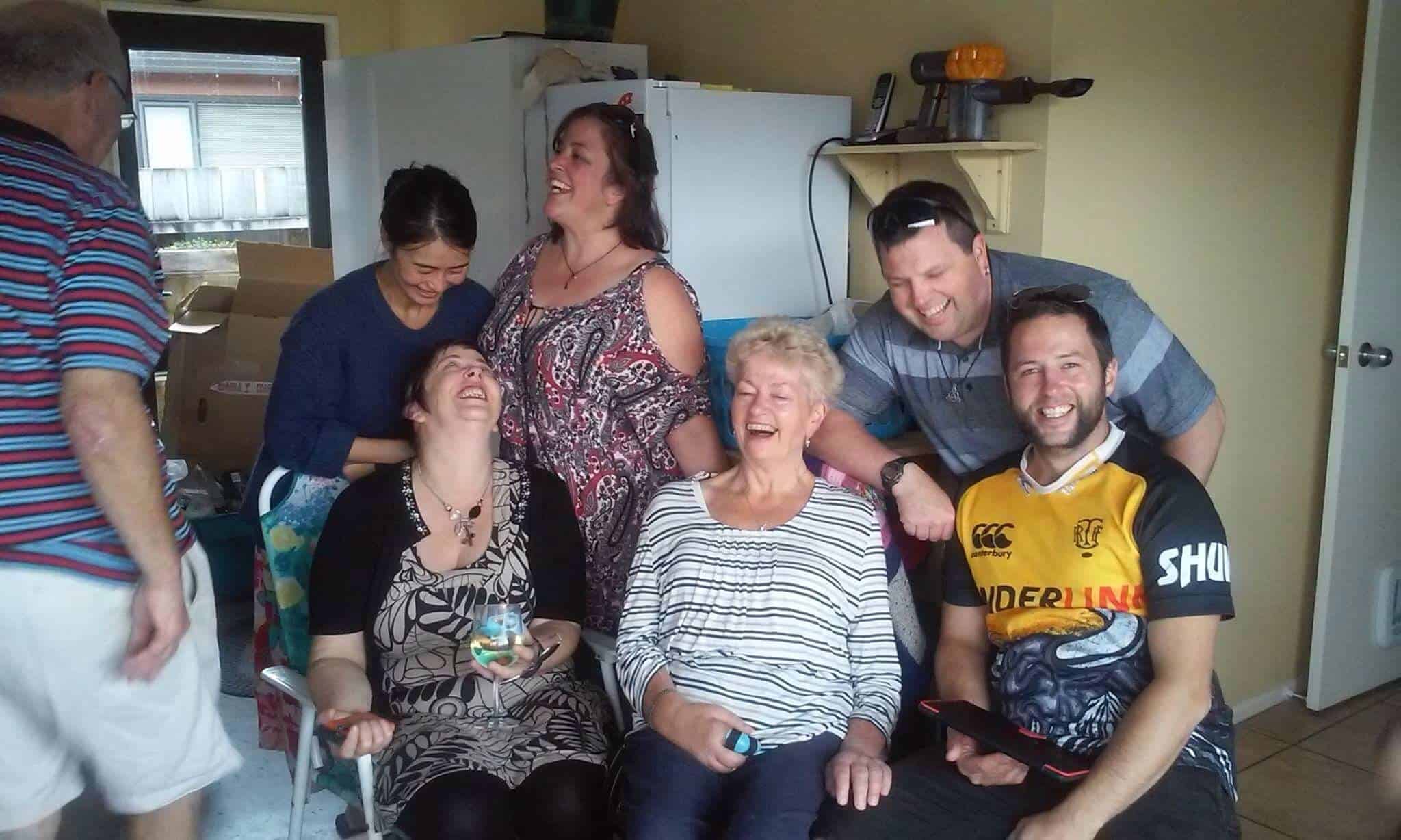
My mother was diagnosed with motor neurone disease (MND) two years ago. She has fought a strong battle, but is now completely shut inside her body.
Mum now communicates with her eyes. The technology that allows her to type by moving her eyes is fabulous. I feel like she is still with me when she sends an email. I know it's taken her a lot of time and energy to write it using just movements of her eyes, but I appreciate it so very much.
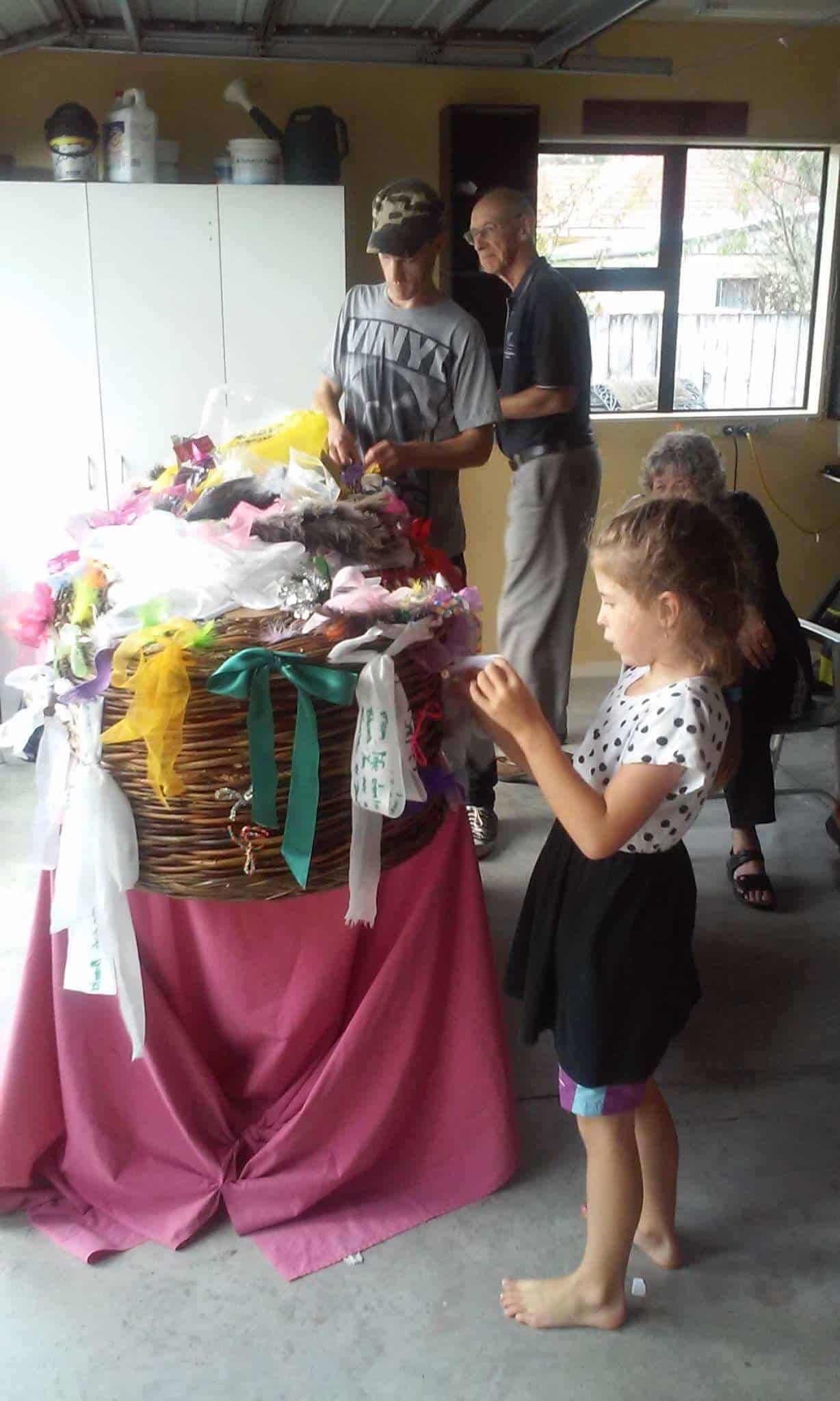
I live 400 kilometres away, but travel down as often as I can to give dad a break from his carer duties.
Since mum’s diagnosis, we have celebrated mum’s life as much as possible. Together we have planned a fabulous funeral with a 21-gun salute with party poppers and glitter guns! We decorated her casket at Easter this year. Every birthday, anniversary and celebration since then, we have added little trinkets, ribbons and love to it.
I'm helping organise the Walk 2 D’Feet MND in the Hawkes Bay. It’s the annual fundraiser for MND New Zealand. Dad is very grateful for their support workers. I hate to imagine what it would have been like without them!
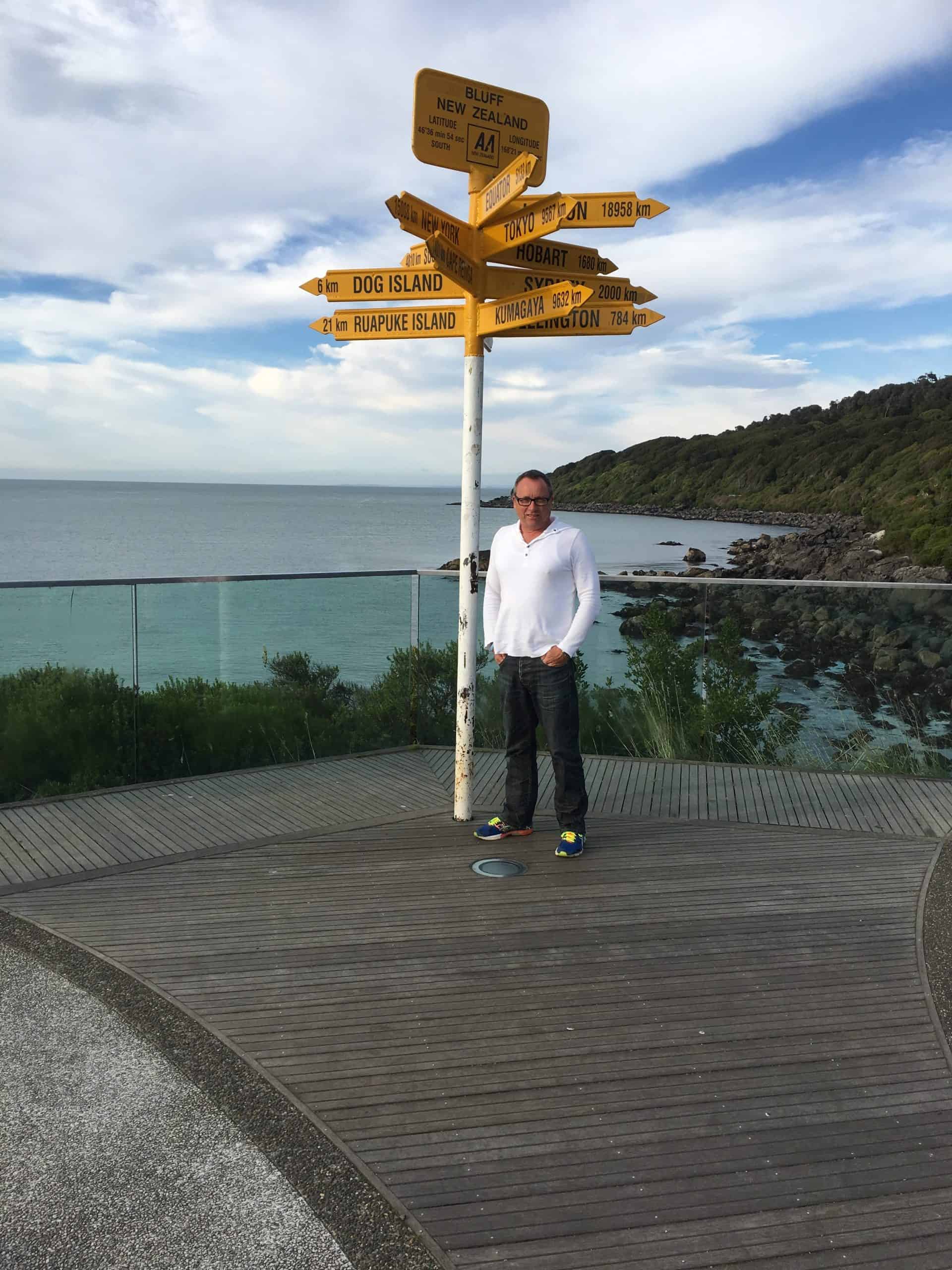
After eight years in real estate sales in Northland, David Seymour was at the height of his career. For the last few years, he had ranked in the top 20 salespeople in New Zealand for the LJ Hooker group.
Then, in February 2017, he was diagnosed with motor neurone disease (MND), a terminal neurological condition that leads to rapidly increasing levels of disability. Not that David led that slow him down much at first.
“There were things that needed to be done,” he says, “and I wasn’t about to give up because I had MND.” He decided to put his diagnosis “in a box” and get back to work.
He had three months after his diagnosis to achieve his career goal of the past three years: life membership of LJ Hooker’s Multimillion Dollar Captain’s Club. It’s an honour held by just 70 people out of 7000 LJ Hooker real estate agents internationally.
“I had to rally,” says David. “I couldn’t let MND slow me down!”
He achieved life membership by the end of April, then set another goal: working part-time through to August and achieving another 10 sales. He achieved his goal in July and by September he’d sold 16 properties. With all his listings now sold, David reluctantly decided to stop working, as his energy levels and ability to drive and walk were deteriorating.
His colleagues at LJ Hooker had been highly supportive. “They would carry things for me and help me – the whole team was there for me. Later in the year we had 25 people from the team turn up to do a working bee at my home to get the garden ready for Christmas,” says David.
His clients – mostly repeat clients at that point in his career – were supportive too. “I was up front with people and explained why I had my walking stick. They knew it wasn’t going to stop me from negotiating a deal on their house.”
He missed out on listings from just two clients who were concerned David’s illness would be a hindrance to his selling. “They were wrong,” he says, “but that’s their prerogative.”
Now David volunteers a few hours every week to coach and mentor young salespeople in his former office. “I think it’s good for my mental state. I’m a very goal orientated person and my goal is now to get these people to the next step in their career. I think I’ve got a few things up my sleeve that work still. It’s satisfying that I can give back, and it’s working – these young guys are stepping up.”
“It’s go hard or go home for me, and it always has been.”
Click here to read an article about David Seymour in the Northern Advocate
Like most people, I had never heard of motor neurone disease (MND) before I was diagnosed with it. My neurologist told me I had two years to live, and to put my affairs in order as there was no known treatment.
That was 11 years ago.
MND is the greatest challenge of my life. It constantly tests my ability to adapt. Losing the ability to walk has been one of my biggest challenges. I was always fit, and I enjoyed running and sports. Now I spend every day as an observer, rather than a ‘do-er’.
The most difficult thing about living with MND has been losing my speech. It's like my very character is under attack. Not being able to speak is very isolating.
I realise though, that I am really lucky. My symptoms first began 13 years ago. I’m lucky to have loving support all around me, and I’m lucky to be alive!
I will be at the 2017 Invercargill Walk 2 D’Feet MND in my motorised wheelchair. I am the one with my loyal miniature dog, Penny, sitting on my lap. If you talk to me or say hello I will acknowledge you with a simple thumbs up or nod. It’s my way of saying, ‘Thanks for caring’.
The Walk is the annual fundraiser for MND New Zealand. They support people with MND all over New Zealand. My support workers have been a real help for sure. Life would be much harder without their support.
My advice to anyone newly diagnosed with MND, and their family, is to stay positive. I appreciate every day, and I keep telling myself that today is the best day of my life. This must be true – for tomorrow I will be just a little bit worse.
I became a full-time carer for my dad when he was diagnosed with motor neurone disease (MND) in 2014. I was 32 years old.
My dad sadly died in December 2015, after living just 16 short months with MND.
As much as I want him here with us now, I know that dad’s suffering is now over and he can rest in peace. Dad's MND attacked mainly his upper body but his mobility eventually became very limited, and near the end of his life we pushed him around in his wheelchair.
MND is an awful disease that has a devastating impact on families.
Without the support of MND New Zealand it would have been just awful. Their support team has amazing knowledge and gave us all so much great advice.
The support we received was beyond amazing, with the many staff who came to visit and who were also only a phone call away for anything and everything my dad needed. I can't thank the entire team enough.
I am volunteering at the 2017 Walk 2 D’Feet MND in Christchurch, after taking part last year. This is the annual fundraiser for MND New Zealand.
My advice to families dealing with MND is to take lots of photos! Stay positive, even though it's hard. And always, always ask for help, because for us it was always there at the end of a phone call.
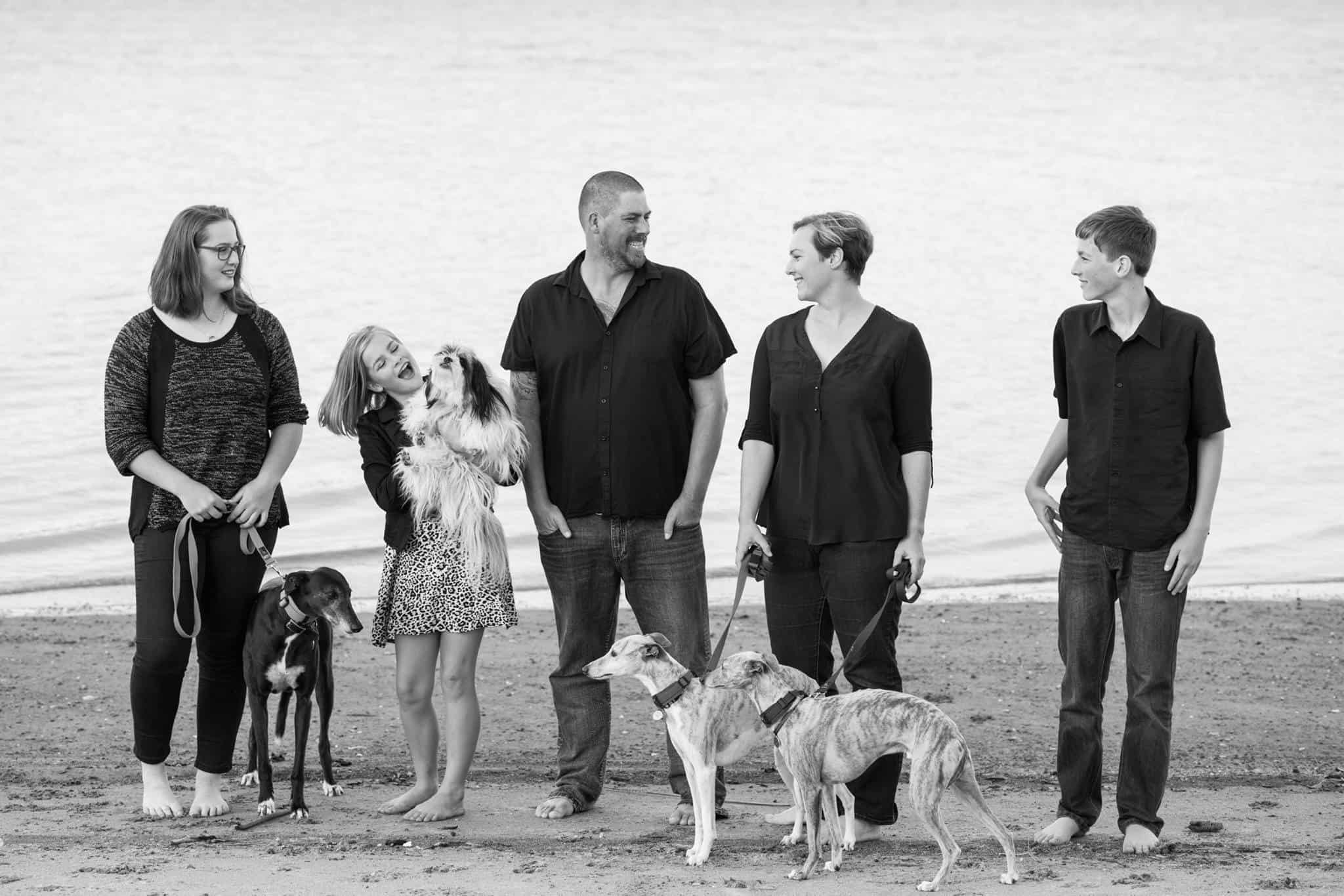
I was diagnosed with MND at the age of 37. I will turn 40 in February 2017.
I have three kids who are currently aged 11, 13 and 16. I have been married to Sian for 18 years.
Before I was diagnosed, I worked as a ‘fly-in, fly-out’ industrial electrician in Western Australia.
MND is extremely scary and confusing. You need professional support as early as possible to get all your choices in order. It helps to have difficult conversations early, so you can get on with enjoying life.
Simply knowing that MND New Zealand can help us when we need them is hugely reassuring. We are very grateful for their support workers.
Click here to read an article about Kevin in the Bay of Plenty Times
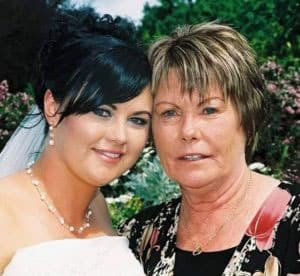
MND New Zealand’s Support Team Member at the time, Remia Casey, was our angel she held our hands all the way though it and continued to hold my hand after. If it wasn’t for Remia Casey, Jude Stevenson (CCS) and Claire Ryan, my mum wouldn't have been able to stay at home for as long as she did, it was about quality not quantity for mum and they helped us achieve that.
My advice to anyone newly diagnosed and their family is just breathe… anything is possible, don’t give up and don’t let doctors and the health system make you feel like your loved one is a waste of time, it's about quality not quantity.
Candy’s husband has sadly passed away since this was written.
My husband has MND and frontal temporal dementia I care for him 24/7. We have a caregiver that showers him 3 days so I can have a break. He is not mobile is still on purée food which I have to feed him. He is on thickened fluids we are waiting for possible peg.
MND New Zealand Support Team Member, Jane, has been wonderful she has given me sanity. I am an ex registered nurse, but even with that knowledge I needed that care and support Jane has given us.
My advice to anyone newly diagnosed and their family is: get in touch with MND New Zealand, you will need support.
My name is Karen, and this is my MND story. Eighteen months ago, at 84, my mum Del was diagnosed with MND.
Mum had been unwell for a couple of years beforehand, displaying a range of symptoms which included fatigue, a persistent cough, trouble swallowing as well as the loss of speech and memory.
A number of medical professionals were involved in trying to diagnose the problem. Finally, in September 2018, Mum was admitted to hospital to undergo a range of tests, finally resulting in a diagnosis of Motor Neurone Disease.
Discovering that Mum had MND was a huge shock to our family, but at the same time, it was a relief to know what we were dealing with. Little did we know when Mum left the hospital after being diagnosed, there would be less than two weeks before she passed away.
We were put in touch with Linda from the MND New Zealand Support Team, who visited us a couple of days after having the bombshell of MND diagnosis dropped on us. Linda was like a breath of fresh air, very honest and comforting. We shed tears, had a laugh with her, and got excellent advice on what we could do to help Mum. I would advise anyone who experiences a MND diagnosis to get in touch with your MND New Zealand Support Team Member as soon as you can.
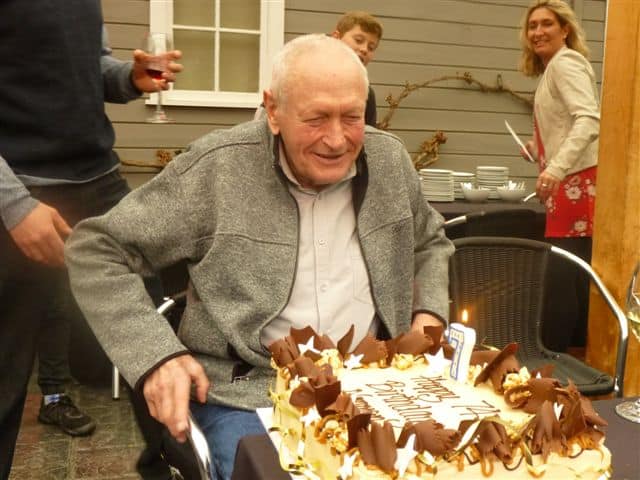
My first symptoms of MND started 5 years ago, in winter 2013, with muscles twitching, shortage of breath and tiredness. My initial thoughts were that older age was the problem – I was 69 at the time.
I first saw my GP about these symptoms 6 months later, and then a neurologist after a further 6 months (July 2014). Various tests of my breathing, lungs, muscles and nerves took place from January to May 2015, resulting in the neurologist diagnosing MND with 80% surety – almost two years after my symptoms began.
MND is difficult to diagnose, as everyone is different. In my case, my breathing muscles were first to weaken – they are usually the last muscles affected, in 90% of cases.
While my wife and I had some suspicion that I had MND (through the internet), we were still shattered by the diagnosis and felt very much alone. My wife and I were very upset, emotional and felt isolated.
We knew nothing of support services at that stage, but subsequently found out about the MND Association of New Zealand and the Canterbury DHB support group, both of whom have greatly supported me since winter 2015. Great support has also been provided by my wife, family, friends and fellow MNDers and their carers.
On finding out about MND New Zealand, we contacted Kate Moulson (then the local support team member) who quickly visited us and provided information both about MND and the MND Association. Since then, Kate has visited regularly, provided useful tips and information, and has always been positive. I always feel much better after her visits.
Kate also arranged meetings where information was provided by specialists and others, and dinners that are most enjoyable. These get-togethers are greatly appreciated by people with MND and their carers. We have something special to share about our affliction but are always amazingly positive about our situation.
Being able to share experiences is a great help, as well as realising that you are not on your own. Without MND New Zealand, our local committee and especially Kate Moulson, it would have taken us much longer to access local contacts and information on MND. We would have felt alone for much longer.
My advice to the newly diagnosed, and their carer/family, is to attend support group meetings where possible, so you can meet and communicate with fellow MNDers. While I was initially concerned about my first meeting, it was one of the best things I could have done and I came away feeling very positive.
My present condition is that I can still communicate easily, can still walk a little (up to 20 steps) and still do small things for myself. My talking is okay, and swallowing is only slightly impaired. I sleep using a Bipap to assist my breathing, and this is also used through the day when tired. Physically, I am quite weak and need assistance to get around (power wheelchair and push wheelchair), and with dressing and showering.
After 5 years with MND I consider myself to be very fortunate to be in the physical and mental state that I am. I have just turned 74 years old and have lived a full and active life living and working in different locations in New Zealand and several countries overseas.
A big thank you to MND New Zealand, our local committee and especially Kate Moulson. The support service has certainly assisted us, and many of the experiences and information shared through the newsletter, website, and Walk 2 D’Feet MND events have been inspiring.
I had never heard of MND until my husband was diagnosed. He had tests, family meetings, drastic changes, urgency to make the most of life. The symptoms will take its toll on the person and whanau, and you need as much support as possible. MND New Zealand’s Support Team Member helped with information for our tamariki, whanau, community. Without them it would have been very difficult to respond to whanau at meetings about MND.
My advice to anyone newly diagnosed and their family is be kind to yourself. You are allowed to feel, you do need to adapt, but never give up. Do a list or plan, do your bucket list, and take care there is only one version of you.
My three children and I lost our beautiful mum and wife, Reinette during February 2021. Reinette was diagnosed with MND during December 2017. We were married for nearly 29 years. She was an inspiration and battled the disease with great dignity.
Our support team member from MND New Zealand was amazing – she provided assistance with some of the neurology specialist appointments, introduced us to another family that was facing the same battle we did, organised a sponsor for mobility transport during our last holiday, and also provided support with the life insurance claim at the end. Reinette always valued the support team member’s visits at home and in hospital.
If we hadn’t been able to access MND New Zealand’s support service, it definitely would have made a very difficult journey more challenging. For a start, the information provided ensured me of a better understanding of the disease. Our support team member had lots of experience and connections that provided so much help and guidance. Resources like the MND New Zealand website were also valuable, and assistance from MND New Zealand supported us to make our last holiday possible.
My advice to anyone newly diagnosed and their families is to remember you are not alone. There is always someone in the background if needed. Spend quality time with your loved ones and friends. You do not know how quick the process will be. While you are still able, get on and make the best of life. Go to those special places and make special moments. Get your paperwork in order (will, power of attorney, etc.) as someone in the future may need to make decisions on your behalf. Share and document your last wishes with your loved ones. Invest and look for that special person that can assist with your caring when it is required.
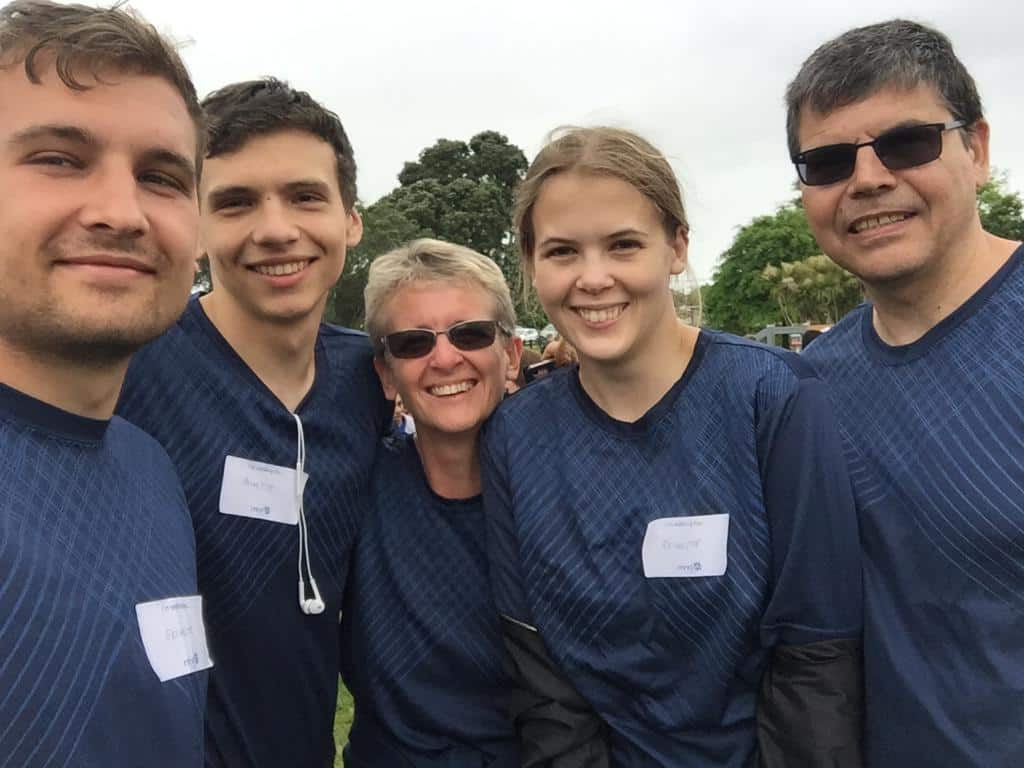
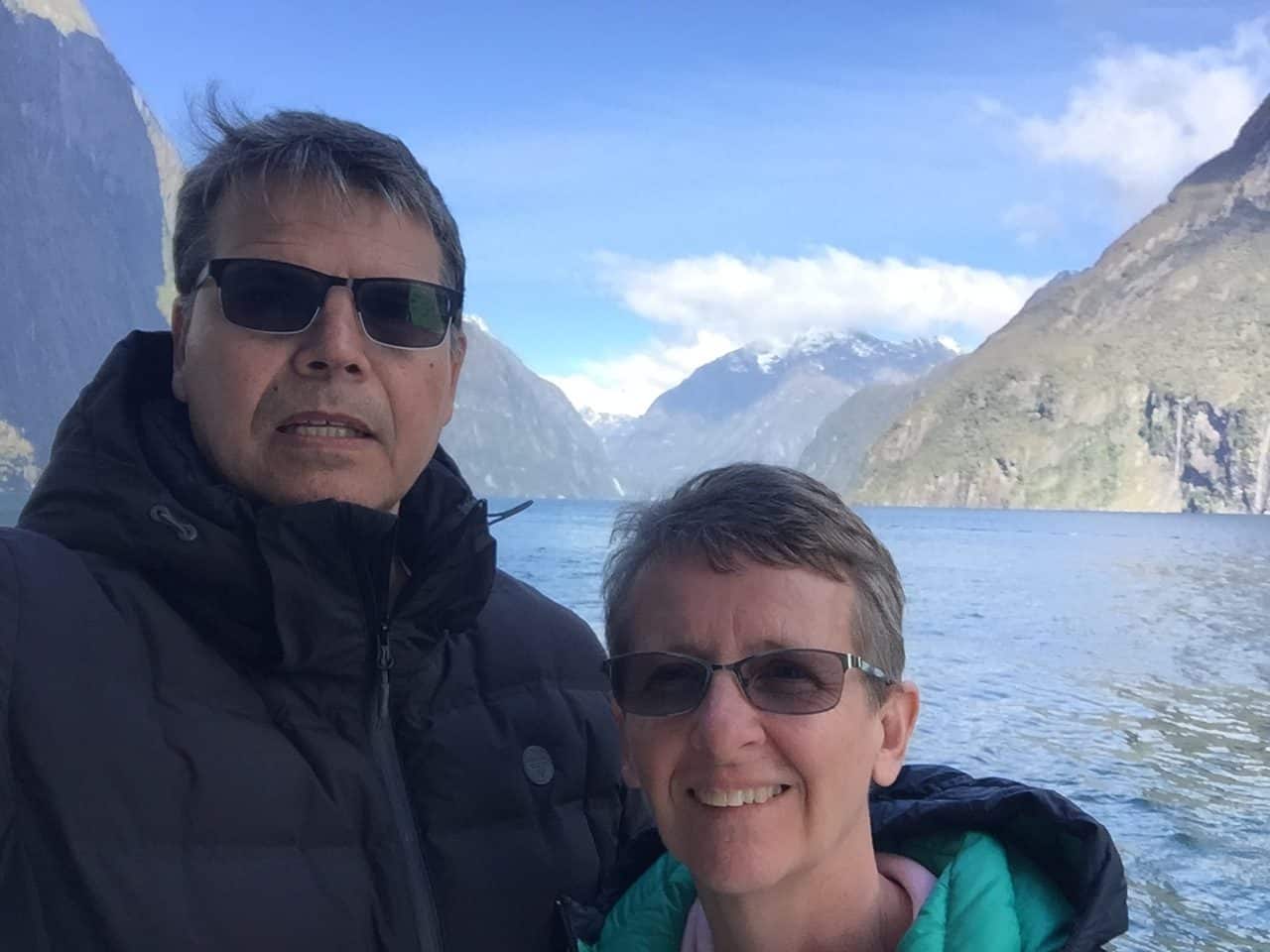
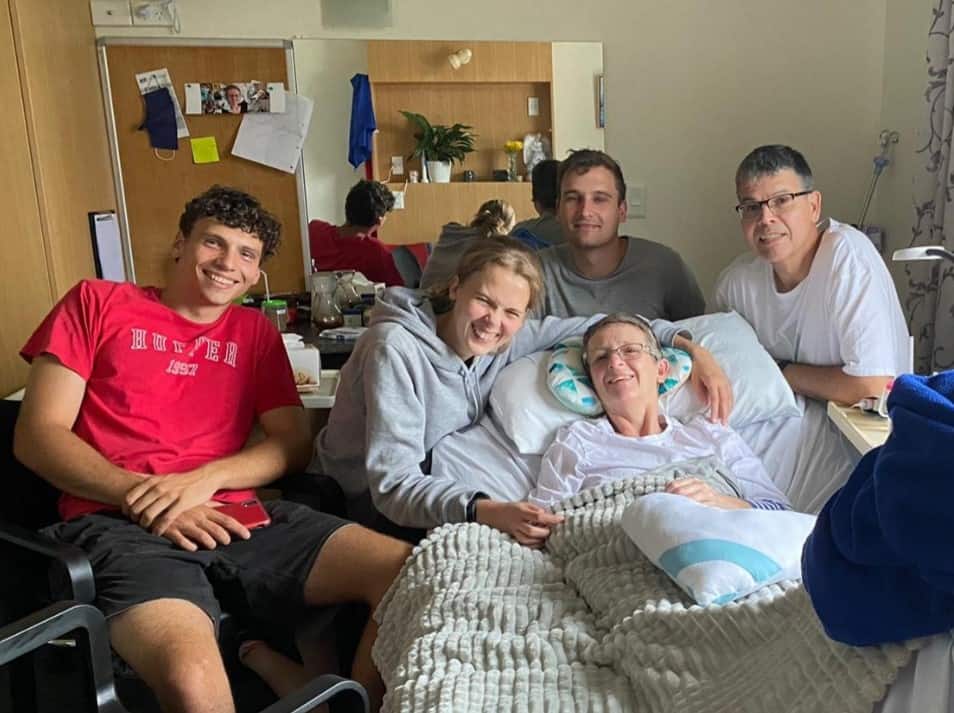
My name is Sheri. I am married to Philip, we have four sons.
Philip was living with MND, truly living. He decided early on in the diagnosis that although two younger family members with MND would be attending trials in Canada to help improve or reverse the onslaught of this hideous disease, that he would stay home in NZ and be around for me and the kids to enjoy whatever time he had left, the cousins were in there 30s and he was approaching 59. Although I had reservations about this decision, perhaps selfishly hoping the treatment could give him more time with us, he truly felt that in the very near future some medical advance WILL help his sons survive a diagnosis.
So we concentrated on his wishes, to keep trying to do things as normally as possible with me and the kids and his very many friends in the helicopter industry, to whom I will be forever grateful.
In the past three weeks Phil and I and our boys have become the closest we have ever been in our lives and with extended family and friends at home we were well aware our time with Phil was nearly up. He struggled for a bit trying to understand the theories in the afterlife, however came to the conclusion that if he was cared for with this much love surrounding him, he would pass in peace, knowing he had been cared for, watched over, talked to, and loved.
My husband was larger than life in the helicopter industry and he knew that at some stage those friends would want to send him off in style, however he decided that his biggest achievement was us, so he chose a private cremation and just us to celebrate him – a husband and father and brother and friend to a close chosen few. This turned out to be the most warming, intimate service anyone could ever have.
MND is a cruel and debilitating disease which will result in death until such a time in the not too distant future, diagnosis will have positive outcomes.
Phil was a very lucky man, all he was shown was love, and at his very peaceful end, in his own home and bed, he was loved til death.
We love and miss you dearly. Your legend lives on.
Sheri, Jason, James, Jack and Ben
After my father and numerous other family members died of MND, I took the test last year and I have the mutation of C9orf72. I am the last in my whānau to have this, I am asymptomatic, but it scares me that I will most likely be struggling with MND sooner rather than never.
MND’s support team became part of our family when my dad was diagnosed and then died 17 years ago. Support team member Elise is there for us now. If we hadn’t been able to access MND New Zealand’s support service we would have felt really isolated and lonely.
My advice to anyone newly diagnosed and their family would be to talk and connect with as many people as you can for support and advice. We can look after each other.
I hope that the support, research and aroha can constantly surround MND whānau in our life’s journey.
My husband Rod developed MND in 2014. I was 65 and he was 69 years old, and worked as a lawyer, in a small city firm. When he was diagnosed he indicated that he would like to spend the last period of his life in our home, and I agreed that I would care for him alone as long as I was physically able to, then we would arrange for qualified healthcare workers to assist me.
After about 11 months he was further diagnosed, this time with advanced and inoperable pancreatic cancer. Unbelievably, he put himself through twelve infusions of chemotherapy, in the desperate hope that he might extend his life, if only by a few months. Rod's MND had by this time progressed to the point that he was wheelchair bound, unable to speak, and almost paralysed. But his fight continued. So did his positivity, and his seeming inability to complain.
Keeping him at home was extremely challenging, and I'm very thankful that we had the financial means to facilitate it. He passed away in February 2017. I had lost 9 kgs, developed atrial fibrillation, and a melanoma on my leg. But it was all worth it, and I know Rod was grateful.
My advice to anyone newly diagnosed and their family is be aware of what the future holds, not only for the sufferer of MND but for those people closest to him or her. The current day is as good as it gets. Pessimistic, but pragmatic.
Know that love is the most important thing you can give. If love is there, you will be able to do far more than you ever thought you were capable of. Know that some friends and / or family members will not be able to cope and will fade into the background. Know that it will feel uncomfortable having strangers enter your home. Know that it's not a sign of weakness to ask for help. Know that it is normal to feel helpless, hopeless, even angry. You are pre-grieving.
My name is Mary and I am 26 years old. Five years ago when I was 21, life as I knew it changed dramatically. The same week that I found out I was pregnant, my mum was diagnosed with MND.
Mum was a high school teacher who absolutely loved life, and at just 52 years of age, it didn’t seem fair that she was facing such a debilitating disease which came with a life sentence. For the next five months, my sister, aunt and I cared for mum. We had lots of support from friends and family and as a team, did our best to meet her needs.
Although this was the most painful chapter of my life, I cherish that special time with her.
Having a team around to support you is crucial. Mum and I had no idea what MND was. Our Support Team Member helped us through the journey, making us feel ok with great, well-timed advice. As a carer, making sure you are getting self-care is vital. It’s natural to focus on the person who has been diagnosed with MND, but to be able to support their needs, we also need to look after ourselves too.
My message to other families going through this difficult experience is to spend as much time together as you can. Say everything you need to say and reach out for support – it’s there if you need it!
Our Ambassadors' Stories
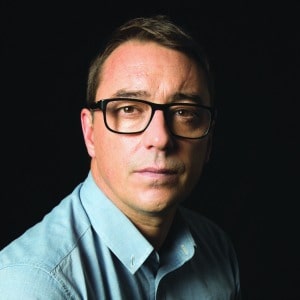
It was 18 years ago that my dad was diagnosed with Motor Neurone Disease.
I was about 27 when we found out, and my parents had just moved to Melbourne for work.
He thought he was having some heart problems, and when he went to the doctor they thought he was having angina, and they did a whole lot of heart tests. They weren't even looking for MND. Then finally he was diagnosed. I think it took four to six months. That's got to change.
The disease moved really fast. Dad lost his speech first. And of course, because your nerves stop controlling the muscles in your tongue, he couldn't eat. We were injecting him with Ensure [liquid nutrition formula, via a PEG tube] straight into his stomach so he could get food. There were occasional times when red wine went down the tube!
Six months before Dad passed away we all went to England together. We did a big road trip for six weeks. He was still quite mobile then. He was trying to tick off as many things from his bucket list as he could before he passed away. The only thing he wasn't allowed to do was get to Base Camp. He was always going to climb Everest, you see. He was going to chopper all the way to Base Camp but the doctors wouldn't let him go, so he missed out on that.
Dad was a Coast-To-Coaster, an Iron Man. He didn't drink till he was about 28, never smoked cigarettes, was very fit, very healthy, looked after himself. He worked hard then never got to enjoy what he worked for.
He was 50 when he passed away. I'm 44 this year.
My dad never met my wife, he never met my son. He never saw me do anything. I was just a travelling bum back then. He never saw me as a teacher, as a Principal or as a Masterchef. He didn't see any of that, which guts me, because actually I did end up doing something!
It was a real struggle for everybody. Dad was this person that never got sick. The hardest thing was watching Mum, watching what she went though. She was Dad's main carer. Mum was a legend through the whole thing, but she really struggled, especially towards the end. Dad was everything to her.
It's changed everything since, for our mum, us brothers and especially our kids. He would've been a really great grandfather. He saw none of the kids.
Life is a very fragile thing. The saying in our family now is that life is for making memories. It's not about the money or anything like that. We live a life that reflects that now.
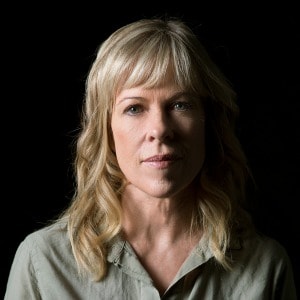
I didn't even know what Motor Neurone Disease was when my mother was diagnosed with it.
One of my friends always comes for Christmas dinner with us. And one year, mum had this really strange slur. My friend's mother had died of Motor Neurone Disease, and when we went out later she said, “I hate to tell you this, but I think your mother's got Motor Neurone Disease.”
I didn't even know that disease existed.
Mum knew something was wrong. She was losing movement in her hands as well as the drunken sounding slur. I remember my sister and I went to the doctor with her, and that was the beginning of the process, because MND can be quite difficult to diagnose.
She died a year later, almost to the day. It was incredibly gruelling, but she was so so brave.
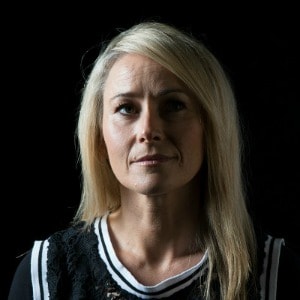
My Dad died of Motor Neurone Disease a year ago.
Dad was a very active man, a farmer in the Waikato. A few years ago he started to find that he was struggling to bend over and put socks on in the mornings. Walking around the farm he felt that one of his legs was feeling very heavy, almost like a dead leg. We thought, has he had a stroke? A mild stroke or a heart attack?
So he went through extensive testing, and it took months and months and months. The testing was pretty traumatic as well. MND is such a hard thing to diagnose. It was just this huge mystery.
He'd never heard of Motor Neurone Disease. He said to the doctor, “Cut my leg off. If you cut my leg off, will that fix me?” That's how helpless he felt.
It just progressed from there, it got worse and worse. Next it was the arm, then the other leg.
After he was diagnosed he kept doing as much as he could on the farm, but he'd fall over in the paddock and struggle to get up.
He had a PEG [feeding tube] put in for feeding. That was a struggle. And communication was a big thing, because he'd want to be involved in conversations and sometimes, for some people, that's in the too-hard basket, which is just wrong. He had a talking iPad app, and we did lots of email, which were great tools.
It progressively got worse – the swallowing, eating, talking, then his lungs. You become trapped in your body. You're mentally sharp, but your body isn't playing ball.
It was about 14 months from Dad's diagnosis until he died. In retrospect he'd probably had it a year before that. He was 67.
What's most cruel about MND, when you compare it to other diseases, is that at least with most others you've got a chance. There's a total lack of hope with an MND diagnosis. Dad just wanted some little glimmer of hope to cling to, and no one could give it to him.
That's where hopefully we can make a difference. We have to support the people doing the hard yards looking for treatments and a cure.
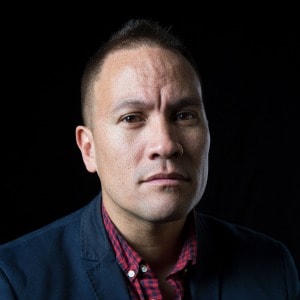
My partner's aunt was diagnosed with MND in 2009. They buried her in 2014.
We visit Tim's family in England regularly – probably as often as we see my family. Every time we arrived we'd see a dramatic change in his auntie's condition, and every time we left we'd wonder if it was the last time we'd see her.
She went from sitting and talking normally, then her words started slurring, to suddenly she was having trouble sitting down. Her mobility was impaired, and eventually it got to the point where they needed to put a chairlift in the stair well, and a hoist in the lounge.
The worst part was actually understanding that with it, her mind was still all there. She could still laugh with us, but she lost all her speech. She still had her humour, she was still witty and funny, but she had to type it all into an app on her iPad and then press ‘Voice'. The family just got used to it.
Basically my role was to support Tim, who supported his mum, who supported her sister. They're a really close family, in England they all live basically on the same three streets.
It really affected our family, especially Tim's mum. She's a nurse, and so she'd go to work and be a nurse, then come home and be a nurse. She nursed her sister right through until she died, so there was a lot of pressure.
Tim's mum wouldn't let her sister just sit in the house though. She'd get her wrapped up, take her into town, take her out, take her to the park, walk the dogs with her. That was really cool, because it would have been easier just to stay in the house.